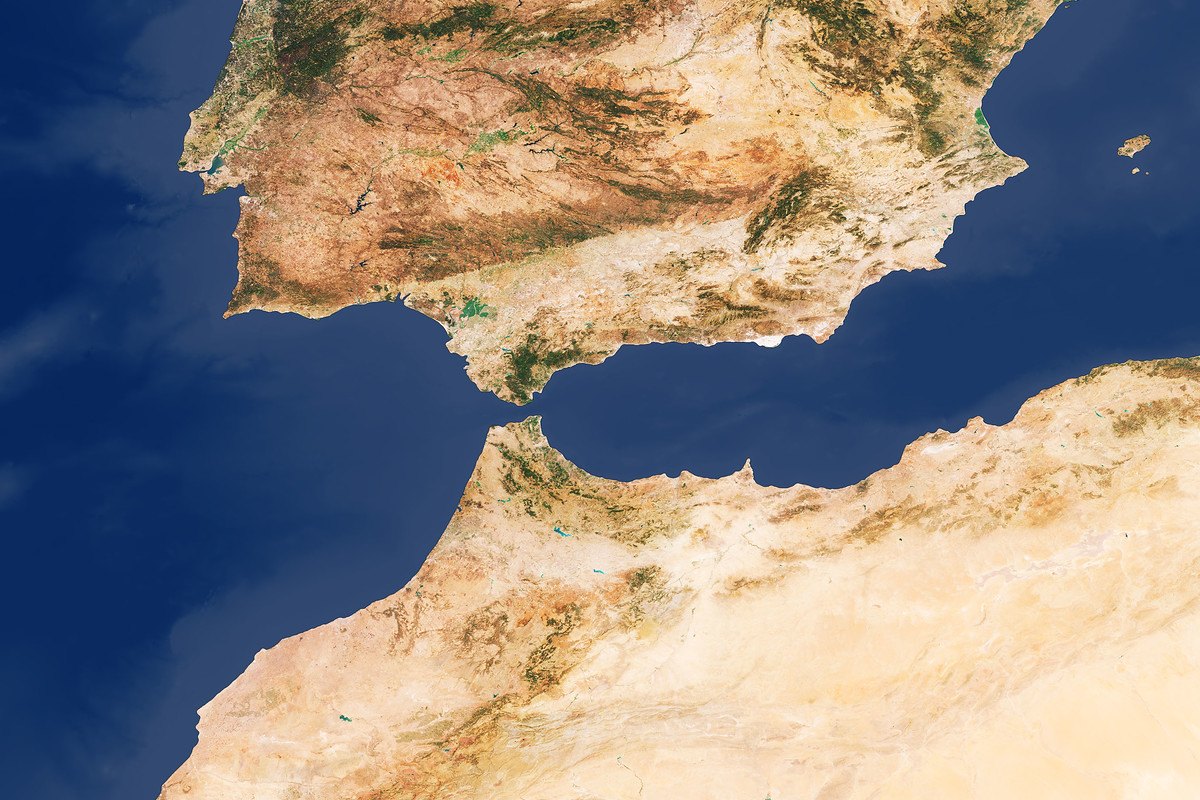News
Launched in 1999 and updated regularly, Statewatch News includes our own reporting and writing as well as articles, announcements, documents and analyses from elsewhere on civil liberties, EU policies and state practices. You can receive updates in your inbox by signing up to our mailing list, or use our RSS feed to get instant alerts.

EU to approve further UK derogations from air passenger profiling safeguards
The Council is set to approve a decision that will allow the UK's continued derogation from safeguards for the automated surveillance and profiling of all air passengers arriving from the EU. The UK-EU Trade and Cooperation Agreement allows the UK to derogate from applying those safeguards while it tries to align its systems with the requirements of Court of Justice jurisprudence. This is the final derogation permitted; it will expire on 31 December 2023.

UK: They are playing a waiting game with us
A special report on the situation for asylum-seekers housed in hotels in the UK. By Ali Zalme (PhD), A British-Kurdish freelance researcher, author of 'Home and Sense of Belonging among Iraqi Kurds in the UK'.

Pegasus spyware scandal: Cypriot government response to European Parliament questionnaire
"The Republic of Cyprus reaffirms its unwavering commitment to the promotion, protection and effective enjoyment of human rights, both domestically and internationally, and acknowledges that the matter currently inquired by the PEGA Committee has raised questions regarding the actual status of certain rights and freedoms in the EU itself."

Joint statement: The EU Artifical Intelligence Act must protect people on the move
Joint statement signed by over 160 organisations and 29 individuals, in the run-up to votes in the European Parliament on the position to be taken in negotiations with the Council of the EU.

Austria calls for EU to adopt UK-style Rwanda plan for refugees
A demand for "asylum procedures in safe third countries" is one of five items on a wishlist put together by Gerhard Karner, Austrian interior minister.

EU: 'Instrumentalisation' Regulation: latest Council Presidency compromise text
On 21 November, the Czech Presidency of the Council of the EU circulated an updated compromise text of the proposed 'Regulation addressing situations of instrumentalisation in the field of migration and asylum'.

EU: Mediterranean migration plan underpinned by more policing and border enforcement in repressive states
An extraordinary meeting of the EU Justice and Home Affairs (JHA) Council will take place tomorrow to discuss migration. The European Commission has published a plan setting out the general direction for action in the central Mediterranean. Other documents obtained by Statewatch shed more light on the matter: more intensive police cooperation with repressive states and externalisation of borders instead of relocation of refugees, in full knowledge of the dire situation for people seeking safety, in particular in Libya.

Schengen border crossing times to increase massively when new database comes into use
EU institutions and member states are racing to have the Entry/Exit System (EES) in place by May 2023. The system will be used for the biometric registration of all travellers to the EU, compiling the times and places they entered and left the bloc. Stay times will be automatically calculated with the hope of catching and removing 'overstayers'. However, the waiting time for travellers at borders looks set to increase substantially. A compilation of member states' comments gives an overview of progress with the system's implementation.

Council seeks to water down human rights safeguards in migration “instrumentalisation” rules
References to child’s best interest and non-refoulement removed; derogations could be applied to people “disembarked following search and rescue operations”.

New Europol rules massively expand police powers and reduce rights protections
The new rules governing Europol, which came into force at the end of June, massively expand the tasks and powers of the EU’s policing agency whilst reducing external scrutiny of its data processing operations and rights protections for individuals, says a report published today by Statewatch.

New online map of the EU’s ‘interoperable’ immigration and policing databases
Statewatch has published an online ‘map’ providing a visual representation of, and information on, the data architecture in the European Union's "area of freedom, security and justice".

New document collection available on Frontex and "operational personal data"
We have published a trove of documents obtained by the journalists Luděk Stavinoha, Apostolis Fotiadis and Giacomo Zandonini for an investigation into Frontex's controversial plan to expand its use of personal data to combat terrorism and "cross-border crime".

EU seeks policing agreement with Israel as far-right leader tipped to become police minister
EU and member state officials have begun discussing a working agreement between Europol and the Israeli authorities. It would allow the exchange of personal data, including sensitive categories of data such as biometrics, racial and ethnic origin, or religious or political beliefs. It also includes derogations that would allow data transferred by Europol to be used in the occupied territories.

Europol management board in breach of new rules as soon as they came into force
The EU’s police agency, Europol, has landed itself in trouble again. Having been formally admonished by the European Data Protection Supervisor (EDPS) late last year for its illegal processing of vast quantities of personal data, and in September for refusing an access request to the personal data of a political activist and trying to cover it up by deleting his data from the system, Statewatch can now reveal that the agency’s management board was in breach of the new rules governing the agency as soon as they came into force in June.

Migrant smuggling in the Western Balkans: Europol, Frontex and EU Asylum Agency presentations
On 28 September the Council of the EU's Working Party on External Aspects of Asylum and Migration (EMWP) discussed migrant smuggling in the Western Balkans. Representatives of Europol, Frontex and the EU Asylum Agency were there to give presentations, which we are publishing here.

Tracking the Pact: EU seeks to seal off Balkan Route with expanded Frontex deployments
The European Commission wants to launch negotiations with Serbia, Montenegro, Bosnia and Albania so that EU border agency Frontex can extend its zone of operations. Currently, Frontex operations in those states can only take place at the borders they share with EU member states, in accordance with the 2016 Frontex Regulation. Upgrading the EU's agreements with the Balkan states to take into account the powers granted to Frontex by the 2019 Regulation will make it possible to deploy EU border guards at non-EU borders - for example, between Bosnia and Serbia, or between Serbia and Montenegro. An agreement with North Macedonia has already been signed. The aim is to halt the irregular movement of people through the Balkans towards "core" EU member states.

EU: Anti-encryption Regulation: Presidency compromise proposals for Chapter I and Chapter III
Negotiations are proceedings on the EU's proposed Regulation laying down rules to prevent and combat child sexual abuse, which will oblige communications service providers to undermine encryption and use unproven automated detection technologies in the hope of detecting online child abuse imagery. In mid-October, the Czech Presidency of the Council circulated compromise proposals on Chapter III, dealing with supervision, enforcement and cooperation. Two weeks later, proposals on Chapter I (general provisions) followed. They are published here.

Council agrees to "intensify police checks related to illegal immigration across the entire territory"
At a meeting of the 'Schengen Council' on 14 October, interior ministers agreed to a number of recommendations on "the migration situation" supposed to address "the current challenging situation at the external borders". Those recommendations have not, until now, been made public.

Spanish government approves another €30 million for migration control in Morocco
On Tuesday last week Spain's Council of Ministers approved sending another €30 million to the Moroccan authorities for migration control purposes, the fourth such financial aid package since 2019, according to an article in Spanish newspaper Público.

'Voluntary Solidarity Platform' for relocating refugees failing to meet targets
On 22 September the European Commission hosted a meeting on the "Voluntary Solidarity Mechanism" (VSM), the latest ad-hoc system set up to relocate refugees from the EU's Mediterranean member states to other member states. It appears that the speed of transfers is not as quick as is hoped, with the conclusions noting that it is "crucial that all Member State initiate to implement the pledges," with the need for "a higher pace of transfers already ahead of the December Council meeting."
Spotted an error? If you've spotted a problem with this page, just click once to let us know.